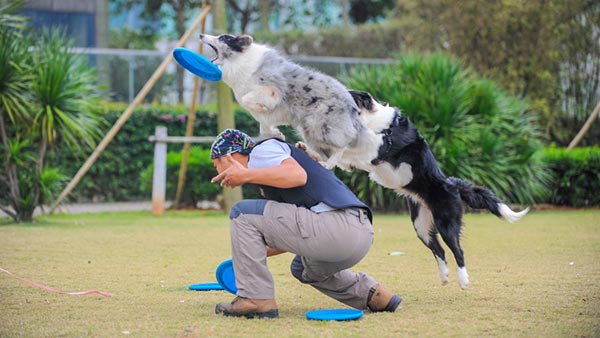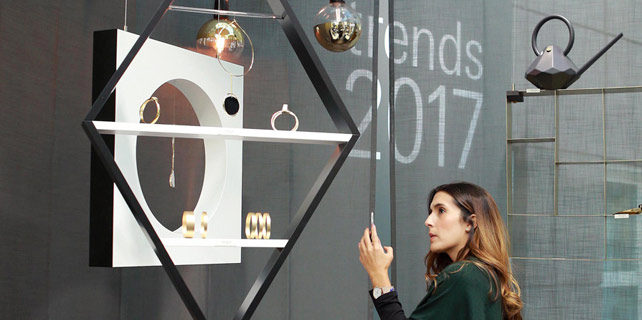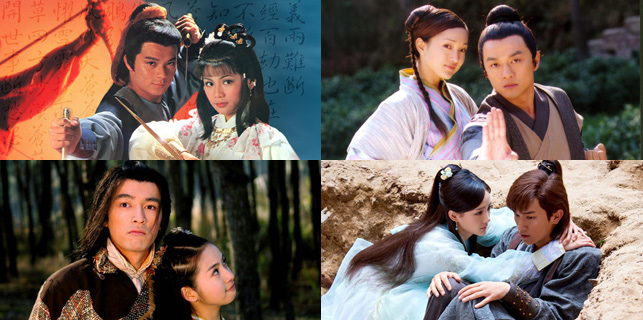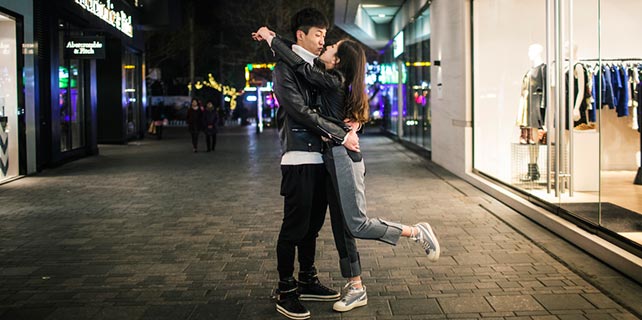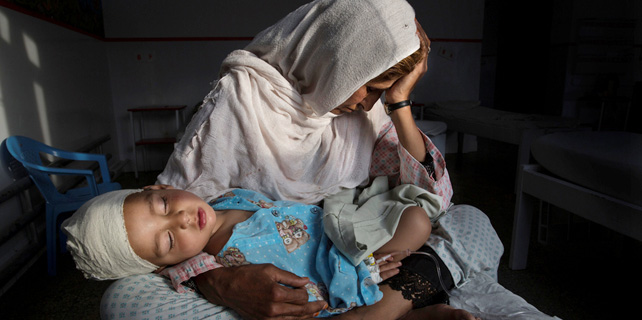China's Meitu app getting in more faces
To its users, the photo app Meitu is an online version of plastic surgery. It allows them to enhance how they look: thinner, bigger eyes, no wrinkles, even whiter.
To others, there are concerns that the free app's filters allow whitewashing, and questions about Meitu's collection of users' mobile data.
And to its China-based developer and stockholders, Meitu is now valued at $4.26 billion with more than 456 million monthly active users. According to an article in May 2016 in Forbes, Meitu generates most of its revenue from selling smartphones built with the selfie lover in mind. They have 21 megapixel cameras for higher quality photos. The phones cost roughly $325 and the company has sold about 200,000 units since 2013.
Meitu - developed by Guangzhou-based photo sharing community and app maker POCO.CN in 2008 - is most popular in China, one of the biggest and fastest-growing beauty markets in the world. Meitu's first photo-editing app for the US market was Airbrush in 2015.
Users can take the app's array of editing tools to remove blemishes and dark circles from the face, slim jaw lines, lengthen a face and figure, add anime-style makeup and brighten skin.
Meitu also offers filters for users to run their selfies through, which let them manipulate a photo's colors and aesthetics. They can then post their photos to social media platforms such as Sina Weibo.
A new set of popular "hand-drawn" filters - which the company said has been activated close to 350 million times - turns a photo-taker's selfie into cartoon-looking characters, with exaggerated facial features.
On security and privacy questions about Meitu, many mobile applications ask users for permission to access a phone's camera, photos, and internet access, but Meitu also collects information on whether a phone has been jailbroken into, what cellular carrier a user is on, as well as permission to view network connections and Wi-Fi connections.
Jonathan Zdziarski, a forensic scientist, security researcher and author, said on Twitter that Meitu is a "throw-together of multiple analytics and marketing/ad tracking packages, with something cute to get people to use it".
Matthew Garrett, a Google security expert, wrote on his website that the app transmits a phone's IMEI, a phone's unique identifier, to servers in China. The IMEI can identify whether a user is on a call and more importantly can better understand how a user can be advertised to.
Both pointed out that Meitu is not unique in collecting the information, with Zdziarski saying that any app that is free to use is likely tracking a user's data to make money off advertising.
Meitu said its app is used in 26 countries, with 430 million users outside of China. The company said its app has been installed on 1.1 billion
devices and that its 456 million global monthly active users have generated 6 billion photos through its apps. The company did not respond to an interview request, but in response to questions on collecting users' information, Meitu issued a statement last month saying that its "sole purpose for collecting the data is to optimize app performance, its effects and features and to better understand our consumer engagement with in-app advertisements." It emphasized that it does not sell the information, and any data collected is encrypted on its servers.
Meitu has encountered more controversy over its filters, with some users accusing the app of whitewashing by changing users' skin tones and giving them more European features.
Mikaela Howard, a high school student from North Carolina, Howard, posts on Instagram and said she came across the app through Instagram friends and thought the app was "adorable" and liked that it made users look like anime characters.
But she said the skin tone issue and over-exaggerated edits are reasons why the novelty of the app is wearing off for her:
"The sad thing is that any apps that make you look 'kawaii' [the Japanese term for cute] tend to whiten your skin. This is definitely a wide spread problem and as a Black person it upsets me," she said. "Darker skin shouldn't be seen as something that needs to be fixed."
The filters, she added, change "way too much" of her face and make her look so different that "it can be kind of unsettling honestly. It's funny to make yourself look like an anime character a few times, but after a while it doesn't feel like you anymore."
Lyval Daria Bertulfo, a 43-year-old photographer based in Virginia, cited the anime likeness - the Japanese animation style - as the reason that she was initially drawn to the app.
"I like anime and I have two daughters who draw and paint their original characters and existing anime and cartoon characters. I used Meitu on my selfies and some on the photos of my family," Bertulfo said.
"I think the app is very cool. I like Meitu because it is fun and easy to use. Plus, I might start posting some of my clients photos in social media using Meitu," said Bertulfo, who just recently discovered the app and has since consistently posted Meitu-edited photos and selfies on her Instagram account.
amyhe@chinadailyusa.com
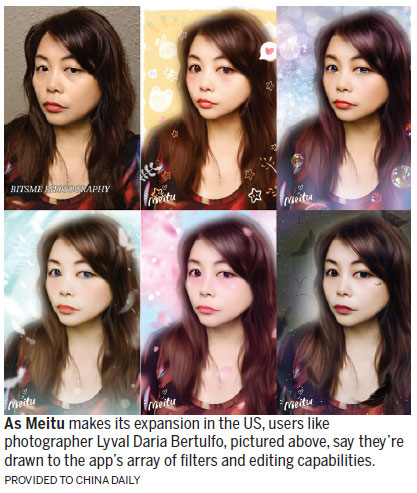
(China Daily USA 02/15/2017 page1)







